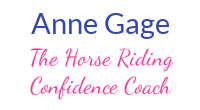At different stages of life, you've likely found that your priorities and interests have shifted and evolved. As a mid-life horse rider, you may have asked the question of whether it's time to give up horse riding - and that idea can be difficult to come to grips with.
You might be finding that balancing the demands of work, family, and other commitments are making it challenging to focus on pursuing your equestrian dreams.
However, before you hang up your riding boots for good, consider these factors and helpful insights to help you make an informed decision.
1. Reflect on Your Goals
As a mid-life horse rider, it's important to review your riding goals and what you hope to achieve with your equestrian experiences.
Do you want to compete at a high level, or is riding primarily a source of relaxation and stress relief for you?
Understanding your objectives can help you determine whether you're still on the right path.
2. Evaluate Your Health
Health and fitness issues often become more of a concern as we get older. It's important to honestly assess your physical and mental well-being and how they impact your ability to ride.
If you're dealing with chronic injuries, health conditions, or mobility issues that make riding difficult or unsafe, it may be time to consider other equestrian activities or even explore alternative hobbies that align better with your current health status.
3. Assess Your Time Commitments
Mid-life can bring a surplus of responsibilities - from job/career demands to family obligations. It's essential to evaluate whether you have enough time to dedicate to your horse and riding.
Carefully consider your schedule and how much time you can realistically allocate to horseback riding. You might find that reducing your riding schedule or changing your choice of equestrian activities can keep you a connected with horses without overwhelming your busy life.
4. Seek Professional Advice
If you're unsure about whether to continue riding, consider getting advice from a trusted professional - such as your riding instructor or a knowledgeable equestrian mentor.
They can provide valuable insights, suggest suitable adjustments to your riding routine, and offer support.
5. Explore Alternatives To Riding
Giving up riding doesn't necessarily mean cutting your ties with horses altogether. There are many horse-related activities that may be more manageable and fulfilling at this stage of your life. Even for a temporary period of time.
These activities allow you to stay connected with horses while accommodating your current lifestyle and situation.
- Groundwork and horsemanship: You can deepen your connection with your horse with groundwork, learning clicker training, and even taking your horse for in-hand walks on trails or around the farm.
- Therapeutic riding: If health or fitness issues affect your riding ability, participating in a therapeutic riding program (that can accommodate various physical abilities) allows you to continue riding with less fear of having a fall or being injured.
- Volunteering: Being a volunteer at a local horse rescue or therapy center allows you to stay involved with horses without the full-time commitment of ownership. And you're giving back to your community.
6. Find a Supportive Community
Being part of a supportive equestrian community can be especially helpful during times of tough decision-making. Connect with fellow mid-life horse riders who are facing (or have been through) similar challenges.
They can share their experiences, offer advice, and provide emotional support as you navigate this decision.
7. Embrace the Journey
Ultimately, the decision to continue riding or hang up your riding boots is a deeply personal one. It's essential to listen to your heart and make choices that align with your values and life circumstances. Remember that your equestrian journey doesn't have to follow a linear path. Embrace the twists and turns, and be open to adjusting your goals and expectations as you go along.
The bottom line:
Is it time to give up riding as a mid-life horse rider? The answer lies within you.
By reflecting on your goals, assessing your health, and evaluating your time commitments, you can make an informed decision.
Remember that your connection with horses can take various forms, and there are many ways to stay involved in the equestrian world while accommodating the changes that mid-life brings.
Ultimately, the most important thing is to find fulfillment and joy in your connection with horses… no matter which path you choose.

